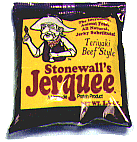

 here are risk factors to be associated with
an investment or purchase of a small
manufacturing company -- no matter what
precautions are taken in advance by the buyer(s)
and seller. The following are worth considering,
some of which are believed to be
unique to purchasing the Lumen Foods
operation under the terms established by the owners (see
Proposed Buy Sell Agreement: here are risk factors to be associated with
an investment or purchase of a small
manufacturing company -- no matter what
precautions are taken in advance by the buyer(s)
and seller. The following are worth considering,
some of which are believed to be
unique to purchasing the Lumen Foods
operation under the terms established by the owners (see
Proposed Buy Sell Agreement:
- Thin Management - Like many
small manufacturers, the expertise to run the operation is
not broadly invested. Greg Caton basically ran the
operation from the date he founded it in 1986 until
he was imprisoned in 2003 as a result of FDA charges
connected with Alpha Omega Labs.
From 2003 to the present, Lumen Foods has been run by
his wife, Cathryn Caton, and the company's controller,
Crystal Leslie. Sales have been steady for the past
three years, but there has been no growth. Any
new owner will have a learning curve to learn the
business, the manufacturing process, formulations,
vendors, distributors, and major customers, etc.
From past experience, we know that if all current employees were
to quit the Company, though the impact would be devastating,
the team now running the operation could
reconstruct the entire operation's personnel within a month.
This is good for security and cost containment, but it
presents definite risks to the buyer / investor.
- No Patents or Registered Trademarks - Lumen Foods
enjoys niche markets due to the creation of specific
proprietary technologies its uses in its production
operations. But this "proprietary-ness" does not come with
legal protections. The Company has no patents, (Caton's
one U.S. patent was sold to Global Preservatives, Inc.),
and even its trademarks (i.e. Stonewall's, Cajun Jerky)
aren't registered.
|
- Few Guaranteed Markets - Unlike companies that have
long-term government contracts that form the bulk of their
business, this Company has only had one QPA (Quantity Purchase
Agreement) in its history -- through U.S. World Foods (though
it was with the State of Indiana and it lasted three years).
Today almost all of Lumen Foods' business is
from consumers, retail stores, and wholesalers, who could be
very fickle if a strong competitor were to enter Lumen Foods'
markets and provide far superior financial muscle to their
marketing. No such competitor has appeared in Lumen Foods'
20 year history, and, in fact, competitors have come and
gone with some regularity. However, this is no guarantee
that a worthy competitor will not arise in the future.
- Bulk of Sales Concentrated in Just One Line -
The bulk of Lumen Foods' retail store sales is concentrated
in just one product line: Stonewall's. There is always
a danger when a company has the majority of its revenue tied
to one brand, no matter how extended the line becomes.
If that brand were to be upseeded by a competitor's product,
the Company's bottom line could be devastasted.
- Profitability Not Strong - The Company is consistently
profitable, but not highly so. This makes the buffer that
the Company utilizes to absorb evitable mistakes quite thin.
- Distance of Markets - There is always a risk when
a Company's largest customer base is not geographically nearby.
Currently, Lumen Foods' business is primarily in the Western
U.S., particularly the West and Northwest. This has posed
no problem, to date, but there is no guarantee it would
not be a problem in the future.
|




